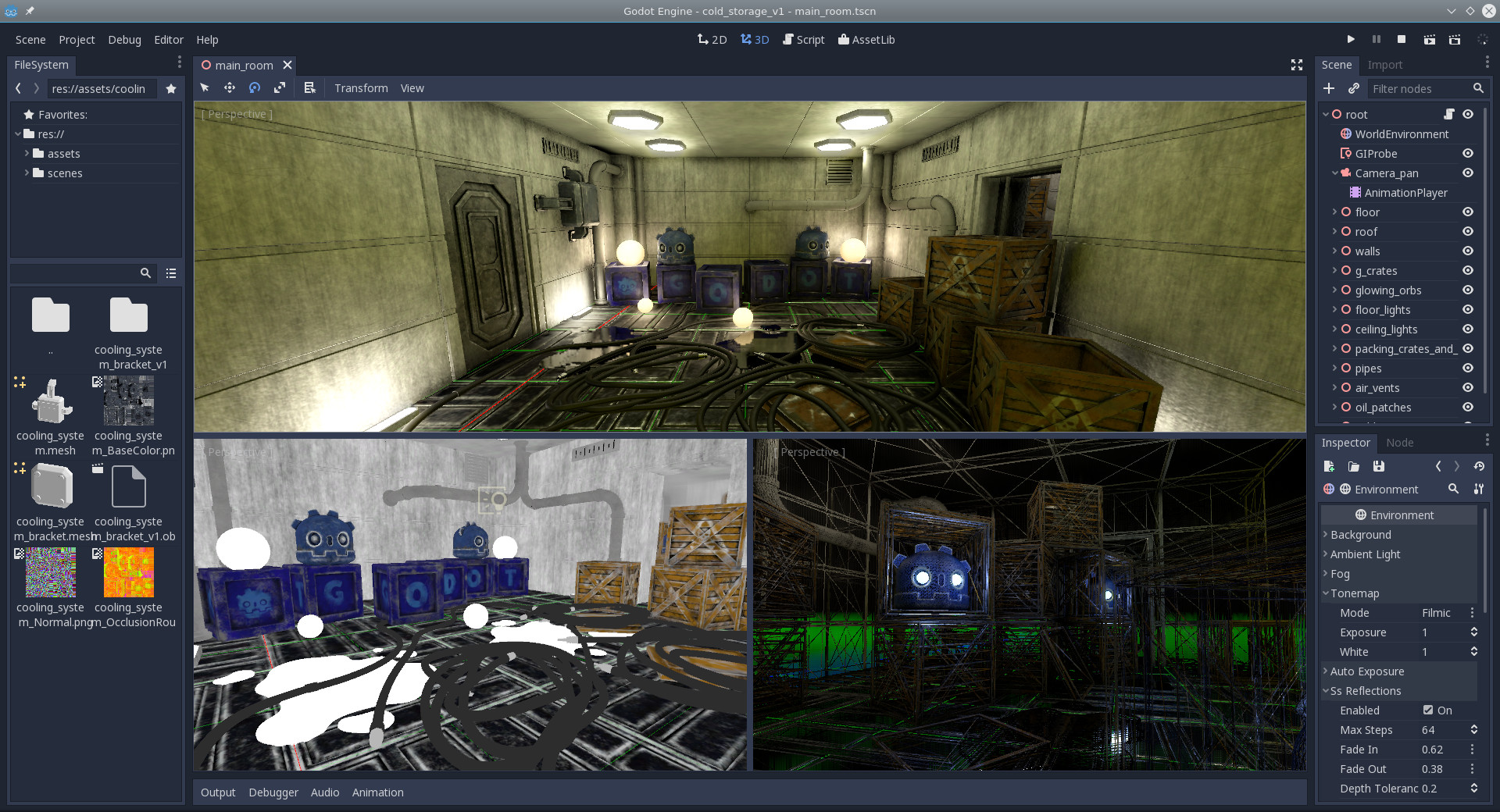SCons has good compiler detection logic for MSVC compilers. Up to now, Godot hasn't used it; it depends on passed-in OS environment vars from a specific Visual Studio cmd.exe windows. This makes it harder to build from a msys or cygwin shell. This change allows SCons to autodetect Visual Studio unless it sees VCINSTALLDIR in the os.environ. It also adds a 'msvc_version' arg for manual specification of compiler version, and uses the existing 'bits' arg to specify the target architecture. More detail could be added as desired. It also adds 'use_mingw' to always use mingw, even if Visual Studio is installed. That uses the existing mingw setup logic. If people are used to building Godot in a Visual Studio cmd window, this should not change the behavior in that case, since VCINSTALLDIR will be set in those windows. (However, note that you could now unset that var and build with any other MSVC version or target arch, even in that window.) I refactored much of platform/windows/detect.py during this, to simplify and clarify the logic. I also cleaned up a bunch of env var settings in windows/detect.py and SConstruct to use modern SCons idioms and simplify things. I suspect this will also enable using the Intel compiler on Windows, though that hasn't been tested. |
||
|---|---|---|
| core | ||
| doc | ||
| drivers | ||
| editor | ||
| main | ||
| misc | ||
| modules | ||
| platform | ||
| scene | ||
| servers | ||
| thirdparty | ||
| .appveyor.yml | ||
| .clang-format | ||
| .editorconfig | ||
| .gitattributes | ||
| .gitignore | ||
| .mailmap | ||
| .travis.yml | ||
| AUTHORS.md | ||
| CHANGELOG.md | ||
| compat.py | ||
| CONTRIBUTING.md | ||
| COPYRIGHT.txt | ||
| DONORS.md | ||
| icon.png | ||
| icon.svg | ||
| ISSUE_TEMPLATE.md | ||
| LICENSE.txt | ||
| logo.png | ||
| logo.svg | ||
| LOGO_LICENSE.md | ||
| methods.py | ||
| README.md | ||
| SConstruct | ||
| version.py | ||
Godot Engine
Homepage: https://godotengine.org
2D and 3D cross-platform game engine
Godot Engine is a feature-packed, cross-platform game engine to create 2D and 3D games from a unified interface. It provides a comprehensive set of common tools, so that users can focus on making games without having to reinvent the wheel. Games can be exported in one click to a number of platforms, including the major desktop platforms (Linux, Mac OSX, Windows) as well as mobile (Android, iOS) and web-based (HTML5) platforms.
Free, open source and community-driven
Godot is completely free and open source under the very permissive MIT license. No strings attached, no royalties, nothing. The users' games are theirs, down to the last line of engine code. Godot's development is fully independent and community-driven, empowering users to help shape their engine to match their expectations. It is supported by the Software Freedom Conservancy not-for-profit.
Before being open sourced in February 2014, Godot had been developed by Juan Linietsky and Ariel Manzur (both still maintaining the project) for several years as an in-house engine, used to publish several work-for-hire titles.
Getting the engine
Binary downloads
Official binaries for the Godot editor and the export templates can be found on the homepage.
Compiling from source
See the official docs for compilation instructions for every supported platform.
Community
Godot is not only an engine but an ever-growing community of users and engine developers. The main community channels are listed on the homepage.
To get in touch with the developers, the best way is to join the #godotengine IRC channel on Freenode.
Documentation and demos
The official documentation is hosted on ReadTheDocs. It is maintained by the Godot community in its own GitHub repository.
The class reference is also accessible from within the engine.
The official demos are maintained in their own GitHub repository as well.
There are also a number of other learning resources provided by the community, such as text and video tutorials, demos, etc. Consult the community channels for more info.

